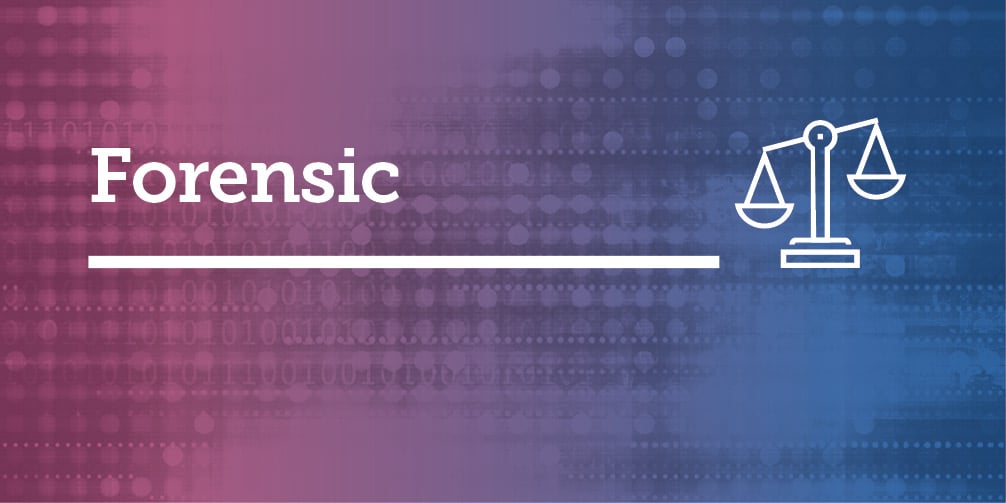Featured Article
Article Title
Revisiting the Brief Jail Mental Health Screen in a Rural Jail Sample
Authors
Albert M. Kopak -a Research2Practice, LLC, Sylva, North Carolina, USA
Alexa J. Singera - Research2Practice, LLC, Sylva, North Carolina, USA
Madison Ballengera - Research2Practice, LLC, Sylva, North Carolina, USA
Norman G. Hoffmann - Founder Evince Clinical Assessments, Waynesville, North Carolina, USA
Abstract
The Brief Jail Mental Health Screen (BJMHS) is one of the most popular screening tools used at the time of jail admission to identify adults with current mental health needs. Prior work has documented the accuracy of the screen primarily in large urban or semi-urban correctional facilities according to diagnostic criteria established in the fourth edition of the Diagnostic and Statistical Manual of Mental Disorders (DSM). The current study was designed to evaluate the precision of the BJMHS in a smaller rural jail setting according to the current DSM-5 criteria in a sample of 210 adults. Responses from the BJMHS were collected and merged with diagnostic indications gathered from the Comprehensive Addictions and Psychological Evaluation. Mental health conditions were highly prevalent with 80% of participants presenting symptoms. The BJMHS accurately identified less than half (40%) of those with a mental health condition. The high false-negative rate of the BJMHS left many adults in need of services without the necessary diagnostic evaluation. Recommendations are provided to help increase the accuracy needed to correctly identify these needs in rural jail populations, which represent those incarcerated in most local detention centers in the U.S.
Keywords
Jail populations; mental health screen; behavioral health assessment (Correctional Mental Health; Correctional Psychology)
Summary of Research
“According to The National Inmate Survey, almost half (44%) of adults detained in local jails had been previously told they met criteria for a mental health disorder by a mental health professional… The most prevalent diagnoses observed among jail populations include post-traumatic stress disorder (PTSD), depression, and antisocial personality disorder… persistently high prevalence of these conditions has prompted the development of basic standards to identify adults in local correctional facilities who may have a mental health need” (p. 157- 158).
“The National Commission on Correctional Healthcare has established protocols for adults during the booking process, which includes the completion of a mental health screen within 14 days following admission to a jail. Many states have codified this recommendation through statutes addressing the detailed screening procedures… Achieving this goal requires the use of an efficient and accurate screening instrument, especially considering the enduring challenges encountered by many local detention centers… systematically screening every person who is booked into the facility requires adequate staff, yet research has shown smaller jails tend to have fewer personnel and limited, if any, resources available for mental health services…
To meet the requirement of a mental health screen for adults entering jail, The Brief Jail Mental Health Screen (BJMHS) was developed and continues to be one of the most strongly endorsed instruments among increasingly popular strategies that aim to accurately identify adults booked into jails who present symptoms consistent with a variety of mental health conditions… the current study compares the BJMHS with an empirically validated tool for identifying substance use and mental health disorders [to] determine its usefulness in identifying mental health conditions among individuals incarcerated in a small, rural jail” (p. 158).
“The current study was designed to assess the ability of the BJMHS to correctly refer participants with the most prevalent mental health conditions for further assessment in a small jail setting by comparing it to a comprehensive assessment that identifies specific mental health diagnoses… The current study was part of a larger project aiming to assess behavioral health needs among adults who were processed through a small county jail. The study site is classified as mostly rural according to the U.S. Census, and the facility has a maximum capacity of 72” (p.159- 160).
“The findings drawn from this understudied population revealed an excessive false-negative rate among participants who received any diagnostic classification. With more than half of those in the study sample that met criteria for a mental health condition remaining undetected by the screen, the instrument clearly failed to identify a substantial proportion of adults in jail with current mental health needs. A substantial amount of work has focused on the importance of accurately identifying persons with severe mental illness, such as psychosis and schizophrenia, in local detention centers. Safety within the facility is often the highest priority for local detention facilities, and screening for these conditions may be a way to reduce the likelihood of safety concerns. Jails may use the BJMHS to triage these conditions, which is consistent with the purpose of screening procedures, but more work is necessary to establish an empirical connection between BJMHS results and specific safety issues” (p. 164).
Translating Research into Practice
“Replacing the BJMHS with an efficient assessment tool would still allow for identification of the conditions that compromise safety, while simultaneously providing jail administrators with a more in-depth understanding of the clinical diagnoses and related needs within their populations” (p. 164).
“Adopting the most accurate screening practices is imperative to reduce the rate of false-positive results and to maximize efficiency in these correctional facilities… Further work is needed to determine the best mental health screening practices in similar as well as diverse rural areas…
It is possible that adults were reluctant to share information regarding mental health history to the correctional staff and more willing to share with the research assistant who was unaffiliated with the Sheriff’s Office. A similarly notable finding discovered grossly underestimated rates of substance use disorders when screening was conducted by uniformed officers during the booking process…
Ideally, local jails would provide a full assessment for all adults admitted to the facility, but this practice remains resource-prohibitive in many detention centers. Those facilities aiming to meet the mandated standard of a systematic screening process could benefit from a more efficient and targeted instrument containing as few as four items. This approach is efficient and accurate, and it would also be mutually beneficial to adults who receive a condition-specific referral based on the most prevalent conditions observed in this correctional population” (p. 166).
Other Interesting Tidbits for Researchers and Clinicians
“Rural areas are generally characterized by a scarcity of healthcare providers and higher than average reluctance to seek formal medical treatment.People who live in rural areas are also acutely aware of the judgment cast by neighbors and community members who may discover they have sought treatment for a mental health condition, further reducing the likelihood of hospitalization or visiting a physician to receive medication…
The items do not account for the array of socioeconomic, cultural, and geographic barriers that prevent adults who are processed through local jails in rural communities from having ever been hospitalized or prescribed medication for their conditions” (p. 165).
Additional Resources/Programs
As always, please join the discussion below if you have thoughts or comments to add about Correctional Mental Health and Correctional Psychology!





























